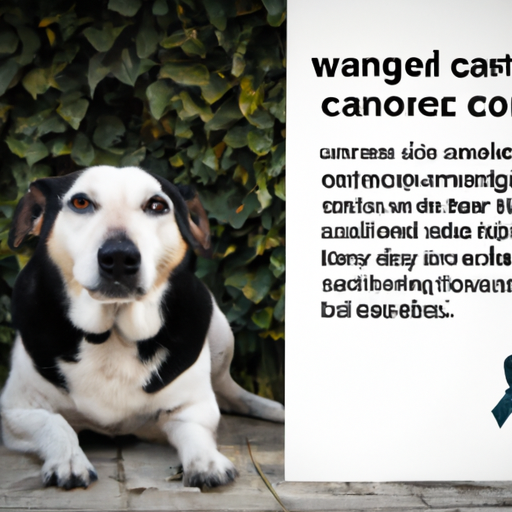Understanding Canine Nasal Cancer
As a dedicated caregiver, it’s crucial to be knowledgeable about the health issues that may affect your beloved pets. Nasal cancer, though relatively rare, is one such malady that can significantly affect dogs’ quality of life.
Typically, nasal cancer accounts for less than 3% of all canine cancers. However, when it does strike, it can be devastating. The tumor usually forms in the nasal passages or sinuses of dogs, leading to a range of symptoms, from nosebleeds to difficulty breathing.
Recognizing the Symptoms
Identifying the signs of nasal cancer early on can lead to a more proactive approach in managing your dog’s health. Here are common symptoms you should look out for:
- Chronic nasal discharge, which may include blood
- Sneezing and coughing
- Difficulty breathing or noisy breathing
- Loss of appetite and weight loss
- Swelling around the nose or eyes
Treatment Options and Prognosis
Treatment options for canine nasal cancer typically include surgery, radiation therapy, chemotherapy, or a combination of these. However, the prognosis often remains poor due to the aggressive nature of this cancer and the sensitive location where it forms. The median survival time with treatment is about a year, but this can vary greatly depending on the individual dog’s situation.
| Treatment | Average Cost | Duration |
|---|---|---|
| Surgery | $1,500-$2,000 | Single Procedure |
| Radiation | $2,000-$6,000 | Several Weeks |
| Chemo | $200-$2,000 | Every 3 Weeks |
Making the Euthanasia Decision
Deciding when to euthanize is one of the most painful decisions you’ll ever make as a pet parent. The decision should be based on your dog’s quality of life, which can be assessed using the HHHHHMM Scale (Hurt, Hunger, Hydration, Hygiene, Happiness, Mobility, and More Good Days Than Bad).
Remember, you’re not alone in this. Reach out to your veterinarian to discuss your concerns and make the decision together.
Coping with the Loss
Grieving is a personal journey that has no right or wrong way. Give yourself permission to grieve, and consider seeking support from pet loss support groups or counsellors.
Frequently Asked Questions
What breeds are more prone to nasal cancer?
Breeds with long noses, like Collies and Greyhounds, are more prone to nasal cancer.
Can nasal cancer be prevented?
There’s no surefire way to prevent nasal cancer in dogs, but reducing exposure to second-hand smoke and other airborne carcinogens may help.
How can I keep my dog comfortable during this time?
Keep your dog’s environment calm and quiet, provide soft bedding, and maintain a regular feeding and medication schedule.
Should I consider getting another pet right away?
This is a personal decision. Some people find it helpful, while others need time to grieve.
Remember, being a pet parent is a journey filled with joy and, unfortunately, sometimes sorrow. But the love and companionship our furry friends provide make it all worth it.



